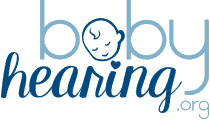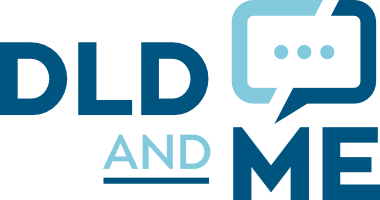Hearing Aids for Babies
When can my baby start to use hearing aids?
Hearing aids can be used for
children of all ages. Hearing aids may be recommended as early as 2-3 months of age, when hearing loss is diagnosed. In the U.S., most newborns have hearing screening before they leave the hospital. If your baby does not pass the screening and follow-up tests show hearing loss that requires hearing aids, the audiologist will guide you through the process.
When your baby begins to wear hearing aids, your audiologist uses a computer to set the hearing aids to your baby’s hearing levels. The audiologist will show you
how the devices work and how to care for them. Before you leave the clinic, make sure that you are comfortable putting them in your baby’s ears.
How often should my baby wear the hearing aids?
The eventual goal is to wear the hearing aids “all waking hours.” It takes time to get to that goal. Sometimes, it can be a very long process.
It is important to have hearing aid use time every day and to continue to build on that time. In the first months of life, babies sleep off and on throughout the day. They don’t have to have the hearing aids on when they are sleeping. Awake times in-between naps are a good time to use the hearing aids. Some hearing aids are water resistant and can also be worn during bath time.
Putting hearing aids on should be part of the daily routine, like getting dressed. Babies thrive on routines.
What if my baby removes the hearing aids?
Most newborns accept wearing hearing aids. The challenge comes when they are old enough to reach up and take them off, beginning at about 4 months of age. It is natural to use this new skill of grabbing objects within their reach.
When your baby develops the ability to take off his or her hearing aids, safe guards should be in place.
- The hearing aids can be attached to a special retention cord so that when the devices are pulled out of the ear, they fall out of reach.
- The devices should have a battery-door lock so that the battery compartment cannot be opened by a young child. This greatly reduces the risk of accidentally swallowing a battery.
- For young babies, a thin cap can be worn that prevents them from touching the hearing aids.
When your baby removes the hearing aids, calmly replace them. If they are ill or very tired, remove the hearing aids. If your baby has ear drainage, remove the hearing aids and notify the doctor.
Hearing and Language Websites
Boys Town has created in-depth websites to help parents, caregivers, educators and others caring for children who have been newly diagnosed as Deaf or hard-of-hearing and for individuals of all ages with speech-language concerns.


Childhood Deafness
Hearing and Balance
